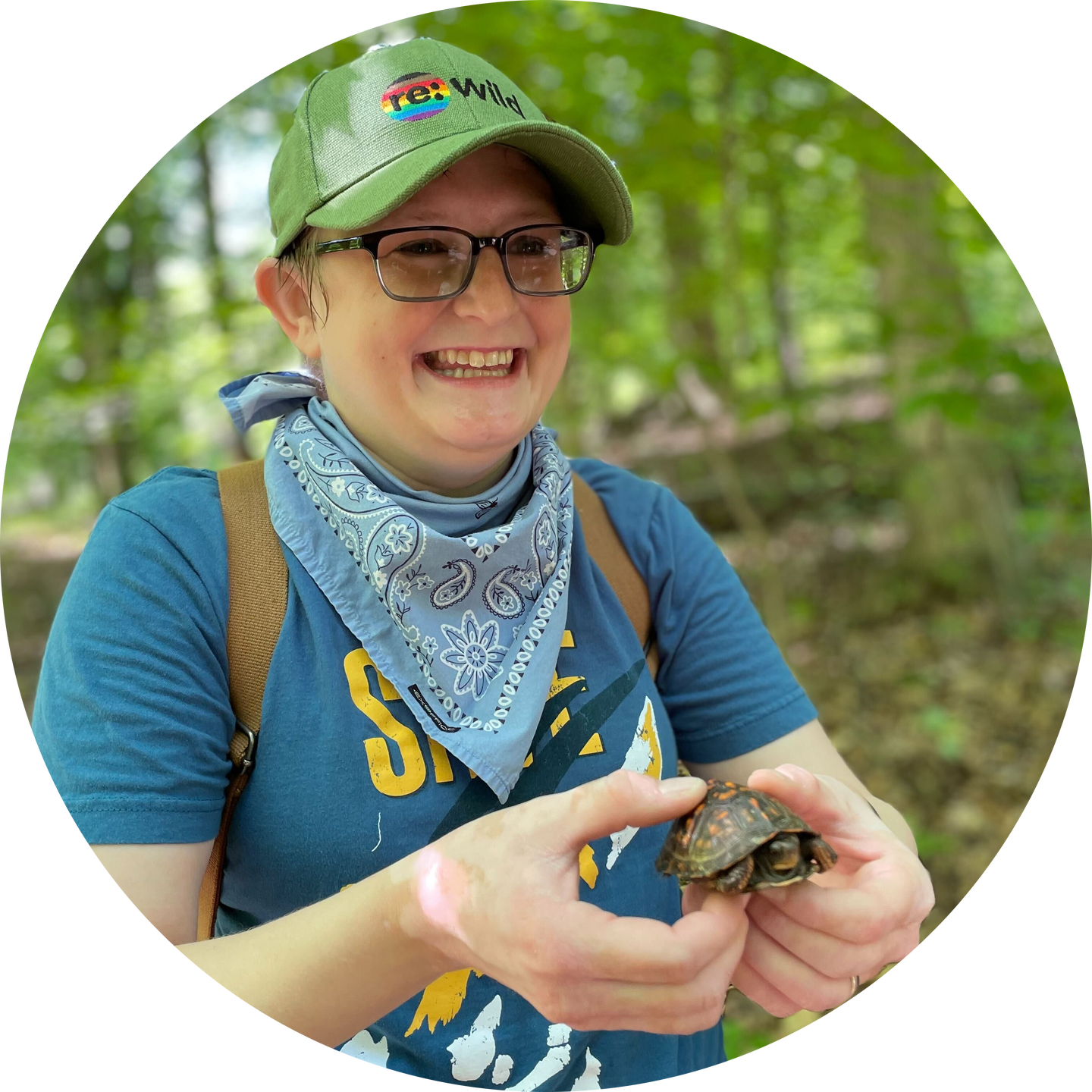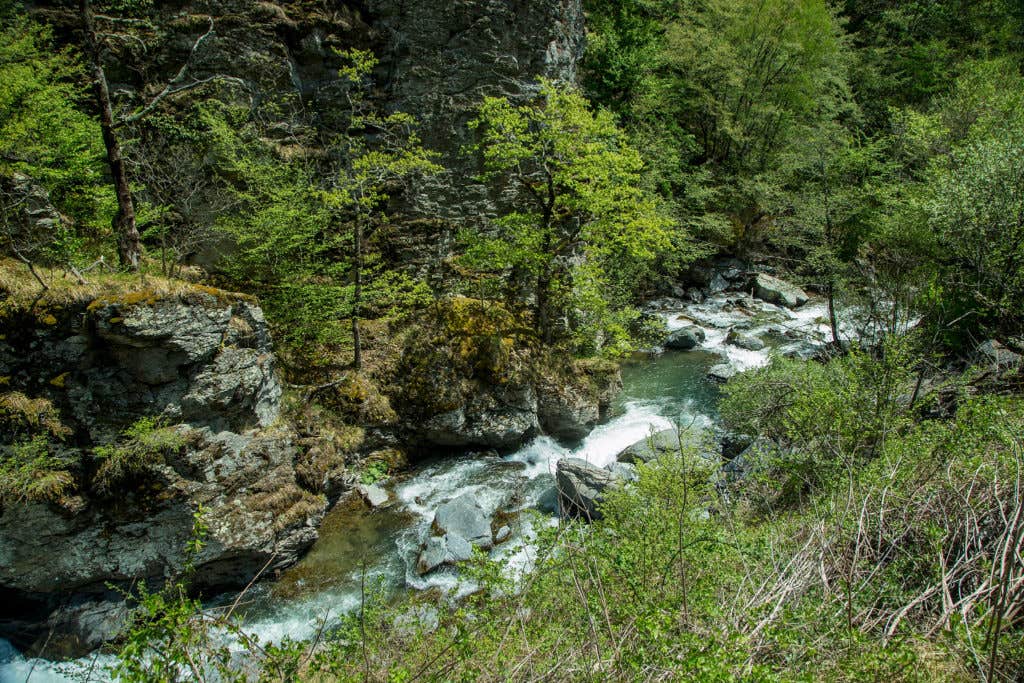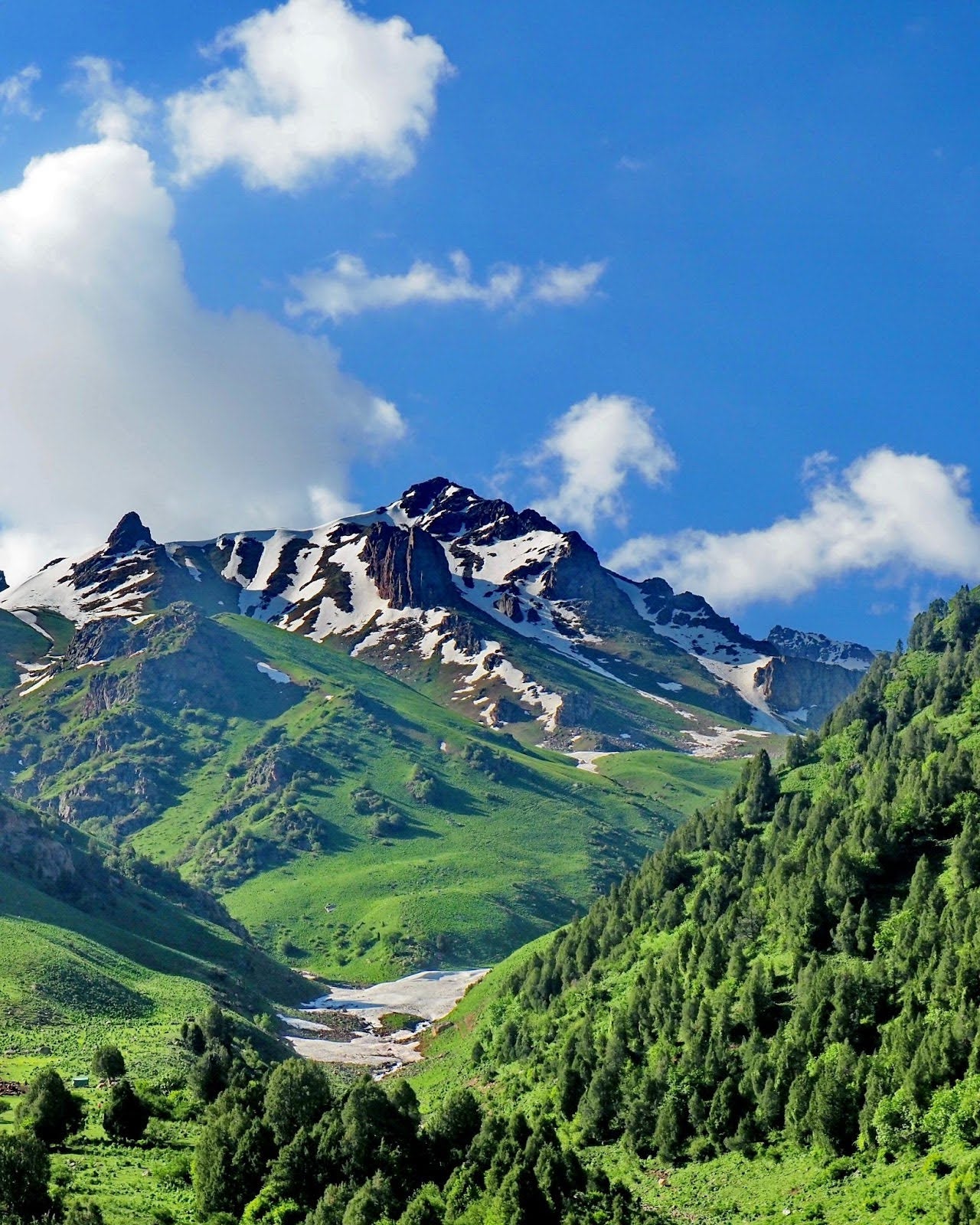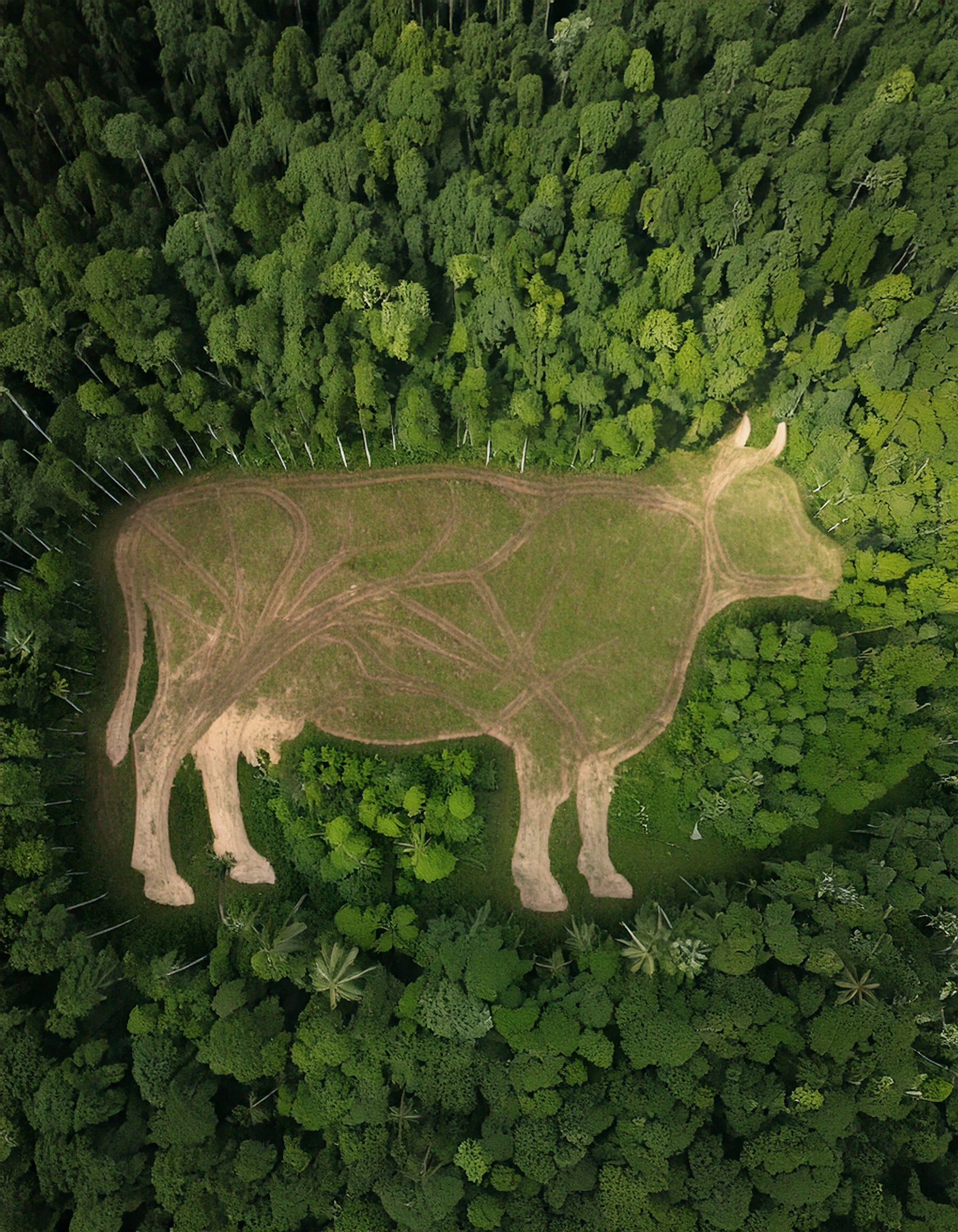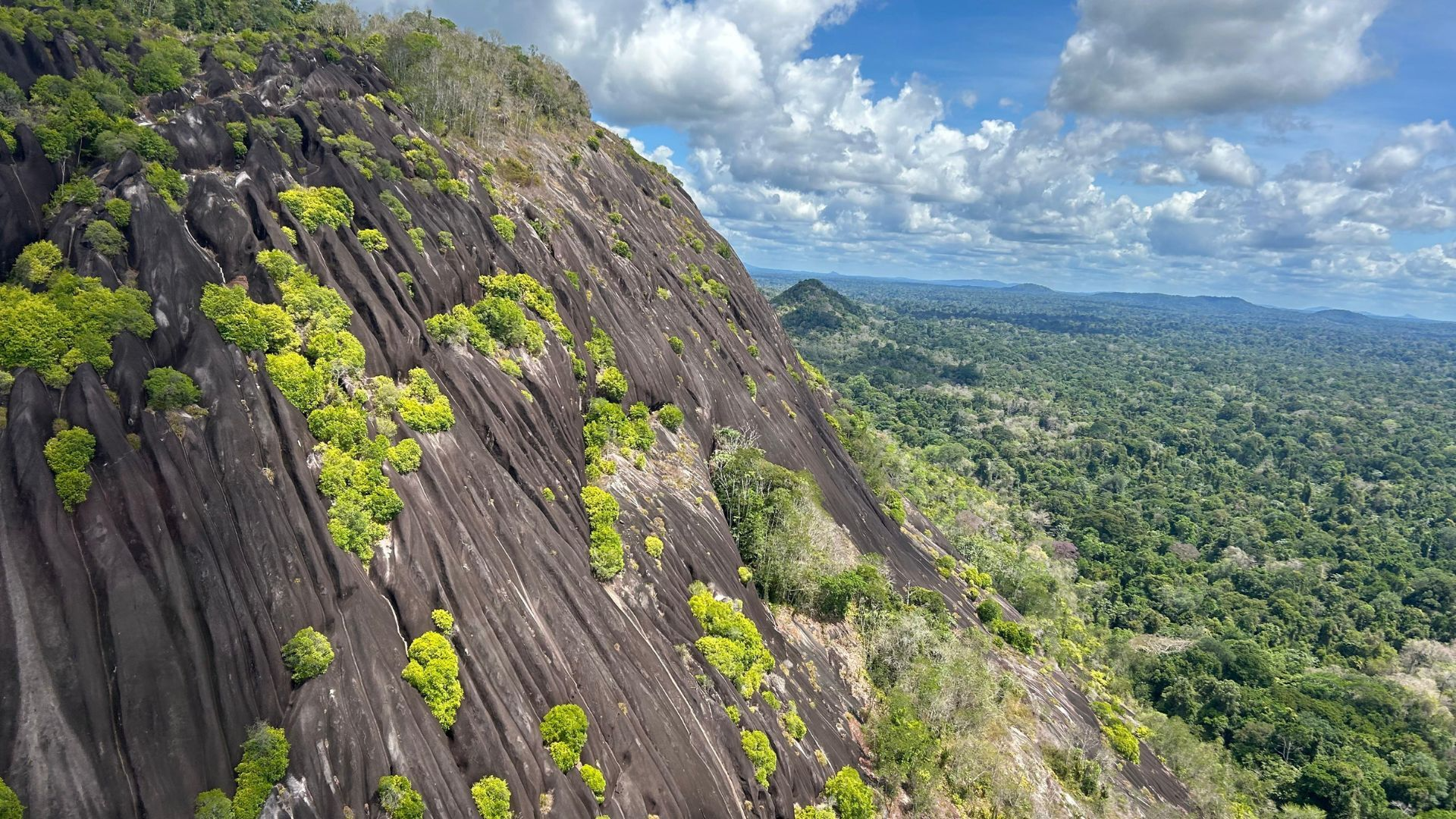New Measure Will Help Deter the Destruction of Critically Important Rivers and Wildlife
Bosnia and Herzegovina’s Neretvica River flows through 30 villages and is home to dozens of fish and other species, some endangered, and spawning habitats. (Photo by Amel Emric)
For immediate release
December 3, 2020
In a decision that could help set a precedent across the Balkans, the Federation of Bosnia and Herzegovina (FBiH) announced Nov. 26 that starting in 2021, the government would no longer provide subsidies that support the construction of small hydropower plants. The leading conservation organizations that in September urgently called on the government to ban new small hydropower plants applaud the government for taking this action, which is a first step toward helping protect thousands of kilometers of Bosnia and Herzegovina’s wild rivers and the people and wildlife that depend on these waterways.
More than 430 small hydropower plants have either recently been built, are under construction, or were planned in Bosnia and Herzegovina. Starting on January 1, 2021, the guaranteed subsidies for small hydropower plants will not be extended, and the funds provided for that will be redirected as incentives to renewable energy sources such as solar and wind. The new bylaws could help prevent the construction of at least 162 small hydropower projects on 79 rivers, but they are unlikely to be able to stop another 30 other projects on 20 rivers for which investors allegedly already have permits.
“It has been so inspiring to see how committed local environmental activism, complemented by international attention, has spurred widespread opposition to this devastating practice,” said Wes Sechrest, Global Wildlife Conservation chief scientist and CEO. “Now it is critical that the FBiH follow through on its promise not only to its people, but to the citizens of the world, who want to see the protection of the rivers of the Balkans, or Europe’s ‘blue heart’.”
Small hydropower plants bring with them the construction of access roads, tunnels, bridges, and transmission lines, with an influx of other human activities that also require tearing down the forests around the rivers and threaten the communities and animals that live there.
Hydropower plants divert water, and restrict access to water for local communities for drinking and use in agricultural practices and other livelihoods. Across the country, local communities, such as those around the Neretvica and Kruščica rivers, have been rising up and holding protests, often forming human walls at construction sites to prevent bulldozers from starting the work. Many Bosnia and Herzegovina residents consider the rivers a part of their identity.
“A 15-year-old activist from the Neretvica River valley told me the river is the heart of his people,” said Marsela Pecanac, founder of Atelier for Community Transformation – ACT. “There is no stronger heart beating in the Balkans right now than the blue heart, and politicians and investors know it. In addition to the 109 hydropower plants recently built in BiH, there is talk of new river concessions for small hydropower in Jajce, the medieval capital of Bosnia located at the mouth of two beautiful rivers. While the activists applaud the newly announced Federation measures, they won’t stop until every river in Bosnia is safe from mindless destruction and our rivers run free again.”
In addition to calling for an end to subsidies to fund the construction of small hydropower plants, a group of local activists asked the government to prohibit local municipalities from granting environmental permits, and vastly improving criteria and formation of commissions for environmental impact study analysis. The conservation organizations are also calling on the other government entity in Bosnia and Herzegovina, Republika Srpska, to take similar action. Republika Srpska had proposed a resolution earlier this year for a temporary ban of all small hydropower projects in Bosnia and Herzegovina, but eventually the National Assembly voted against it, despite significant local community pressure.
“Cancelling the subsidies for hydropower is the most important step to save the rivers, because it limits the two root causes of dam construction: money and corruption,” said Ulrich Eichelmann, coordinator of the Blue Heart campaign from Riverwatch. “As long as you can make a fortune by destroying rivers, dams will be built. The FBiH can become a trend-setter for protection of rivers for the whole of Europe. While this step is fully in line with the EU Green Deal, the announcement must become reality. Dear FBiH government: Europe is watching you!”
Nearly all Balkan’s rivers are facing an onslaught of small hydropower plant construction, with plans for 3,000 dams to be constructed in the area--and more than 1,000 of those are planned within protected areas.
The projects have been driven by local and foreign investors, with diverse financial support, including subsidies for renewables. Some investors use the argument that hydropower can help Bosnia and Herzegovina meet its goal of 40 percent renewable energy (one of the highest targets in Europe) to get the country a step closer to joining the European Union. Although current small hydro plants in Bosnia and Herzegovina only produce around 3 percent of the country’s annual electricity production and come at a huge environmental cost, until now the government has continued to grant permits and subsidies for these new small and medium hydro projects that have a negligible “renewable energy” contribution.
Activists across Europe are pushing for the protection of the continent’s “blue heart” rivers with a legal framework similar to the United States’ Wild and Scenic Rivers Act, which protects rivers with natural, cultural and recreational significance. They would also like to see the constitutional protection of water and the right to clean water.
The rivers between Slovenia and Albania, including those in Bosnia and Herzegovina, are considered the most important hotspot for threatened freshwater biodiversity in Europe. Sixty-nine fish species in these rivers live nowhere else in the world. The Balkan Rivers are home to marble, softmouth, Ohrid and prespa trout; the endangered huchen (or Danube) salmon; the endangered Balkan lynx; and the endangered white-clawed crayfish. They provide critical spawning habitat for many of the 113 endangered freshwater fish species in the Balkans. According to freshwater experts, if small hydropower projects are allowed to continue, at least 10 percent of all European freshwater fish species will go extinct or will be pushed to the brink of extinction.
The International Union for Conservation of Nature Freshwater Biodiversity Unit is currently reviewing proposals for 11 freshwater Key Biodiversity Areas in Bosnia and Herzegovina, with the potential for more, underscoring that these sites are globally important for the health of the planet and for the persistence of biodiversity.

The organizations that are part of this broad coalition include: 2020 Action, American Rivers, Arnika, Atelier for Community Transformation – ACT, CEE Bankwatch Network, the Coalition for the Protection of Rivers of Bosnia and Herzegovina, David Brower Center, EarthAction, Earth Law Center, EuroNatur Foundation, Freshwater Life, Global Wildlife Conservation, International Rivers, the International Union for Conservation of Nature Species Survival Commission Freshwater Fish Specialist Group, the IUCN SSC Freshwater Conservation Committee, Institute for Environmental Security, Rainforest Action Network, The Redford Center, Riverwatch, Save the Blue Heart of Europe, Shoal, the World Fish Migration Foundation, World Future Council, and WWF.
# # #
Photo: Bosnia and Herzegovina’s Neretvica River flows through 30 villages and is home to dozens of fish and other species, many endangered, and spawning habitats. (Photo by Amel Emric)
Global Wildlife Conservation
GWC conserves the diversity of life on Earth by safeguarding wildlands, protecting wildlife and supporting guardians. We maximize our impact through scientific research, biodiversity exploration, habitat conservation, protected area management, wildlife crime prevention, endangered species recovery, and conservation leadership cultivation. Learn more at https://globalwildlife.org
2020 Action
2020 Action informs and inspires Americans to turn their concern, passion, and outrage into meaningful action for a more just, peaceful, and sustainable world.
American Rivers
American Rivers protects wild rivers, restores damaged rivers, and conserves clean water for people and nature. Since 1973, American Rivers has protected and restored more than 150,000 miles of rivers through advocacy efforts, on-the-ground projects, and an annual America’s Most Endangered Rivers® campaign. Headquartered in Washington, DC, American Rivers has offices across the country and more than 200,000 members, supporters, and volunteers. American Rivers maintains a positive work environment with a culture of learning, support and balance. For more information please visit www.americanrivers.org.
Arnika
Arnika is a Prague-based non-governmental organization established in 2001 and uniting people seeking a better environment. The organization focuses on promoting environmental justice and a world without toxic pollutants and waste, with natural and living rivers and lands. People in Arnika believe that natural wealth is not only a gift, but also an obligation to save it for the future. See more at: www.arnika.org/en
Atelier for Community Transformation – ACT
ACT supports activists and artists in the Western Balkans by helping them rebuild their communities and by challenging systemic injustice through grassroots networks and strategic campaigns.
CEE Bankwatch Network
Bankwatch is the largest network of grassroots, environmental and human rights groups in central and eastern Europe. It monitors public finance institutions that are responsible for hundreds of billions of euros in investments across the globe. Together with local communities and other NGOs Bankwatch works to expose their influence and provide a counterbalance to their unchecked power.
The Coalition for the Protection of Rivers of Bosnia and Herzegovina
The Coalition for the Protection of Rivers of Bosnia and Herzegovina was established in June 2016 by civil society organizations and individuals who love nature, monitor plans for the construction of hydropower plants and advocate the development of tourism, traditional and complementary activities that can provide more diverse jobs and achieve greater development of local communities. The role of the Coalition is to provide support for the local population to get involved in decision-making in a timely manner and to adopt a position on the construction of hydropower plants in Bosnia and Herzegovina. The Coalition for the Protection of Rivers of BiH, which currently gathers over 20 organizations from all over the country, and the number of members, continues to grow.
David Brower Center
The David Brower Center provides a home for the environmental movement by advocating for the beauty, diversity and ecological integrity of Earth. The Brower Center accomplishes this mission through a distinctive combination of permanent infrastructure and ongoing programs in a unique institution that: Informs the public about the environmental challenges we face and the bold actions we must take if ours is to remain a living planet; inspires people to recognize their own power and responsibility to act on behalf of the Earth; and connects individuals and organizations dedicated to social equity and ecological sustainability.
Earthaction.org
EarthAction is a global action network uniting people and organizations for peace, justice and the environment.
Earth Law Center
Earth Law Center (www.earthlawcenter.org) is a 501c3 organization that works to transform the law to recognize and protect nature’s inherent rights to exist, thrive and evolve. They recently released the first-ever law school coursebook on “Earth law,” which is an emerging body of ecocentric law, including the Rights of Nature.
EuroNatur
EuroNatur is a nature conservation foundation based in Radolfzell, Germany. Together with our Europe-wide partner network we create solutions that allow humans to live and work in harmony with nature. Our aim is a powerful network committed to protecting our European natural heritage.
Freshwater Life
Freshwater Life works to save the world's most endangered freshwater species from extinction by addressing the threat of invasive species. We partner with local communities, conservation practitioners, and international experts to build capacity and conduct effective conservation action on the ground. For more information: https://fwlife.org/
International Rivers
American Rivers believes a future of clean water and healthy rivers for everyone, everywhere is essential. Since 1973, we have protected wild rivers, restored damaged rivers and conserved clean water for people and nature. With headquarters in Washington, D.C., and 300,000 supporters, members and volunteers across the country, we are the most trusted and influential river conservation organization in the United States, delivering solutions for a better future. Because life needs rivers. Learn more: https://www.internationalrivers.org/about/
Institute for Environmental Security
The Institute for Environmental Security (IES) is an international non-profit non-governmental organisation established in 2002 in The Hague, in order to increase political attention to environmental security as a means to help safeguard essential conditions for peace and sustainable development. The Institute's mission is: "To advance global environmental security by promoting the maintenance of the regenerative capacity of life-supporting eco-systems. Learn more: https://www.envirosecurity.org/what-we-do
IUCN SSC Freshwater Fish Specialist Group (FFSG)
The FFSG was established in 2004 with its goal to achieve conservation and sustainable use of freshwater fishes and their habitats. We do this though generating and disseminating sound scientific knowledge; creating widespread awareness of the values of freshwater fishes, and influencing decision-making processes at all levels.
IUCN SSC Freshwater Conservation Committee (FCC)
The FCC was established in 2010 in order to urgently address the global freshwater biodiversity crisis, by drawing attention to issues concerning freshwater biodiversity conservation.
Rainforest Action Network
Rainforest Action Network preserves forests, protects the climate and upholds human rights by challenging corporate power and systemic injustice through frontline partnerships and strategic campaigns. https://www.ran.org/
Riverwatch
Riverwatch is a society for the protection of rivers. Our ambition is to preserve the last unimpaired rivers as well as restoring those already canalized or dammed.
The Redford Center
Co-founded in 2005 by Robert Redford and his son James Redford, The Redford Center uses impact-driven film and media to build the movement toward environmental justice, protection and repair. The nonprofit organization produces, funds and supports a diverse portfolio of filmmakers and projects that represent often unheard but necessary perspectives taking action to preserve and restore the planet. https://redfordcenter.org/
Save the Blue Heart of Europe
In cooperation with local partners, the NGOs EuroNatur and RiverWatch launched the Save the Blue Heart of Europe campaign to save the unique rivers of the Balkans by preserving the most valuable streams and stretches with regard to ecology and biodiversity.
Shoal
Shoal is a global collaborative initiative to save and recover populations of the most threatened freshwater species around the world. Rivers, lakes and wetlands are home to 12% of all known species, and provide essential drinking water to humans everywhere. Yet freshwater biodiversity is declining faster than that of marine or terrestrial habitats. With 1 in 3 freshwater species threatened with extinction, and an 84% decline in freshwater populations since 1970, there is an urgent need for ambitious and determined action. Shoal was established to give critical attention to these species that for so long have been overlooked and underfunded. shoalconservation.org
World Fish Migration Foundation
Founded in 2014, the World Fish Migration Foundation (WFMF) is an international organization with a mission to save migratory fish in rivers. The Foundation harnesses global attention for the challenges migratory fish face through a multitude of international, collaborative projects aimed at advocating for obsolete dam removals, and supporting initiatives that open up important swimways. For more information, visit www.worldfishmigrationfoundation.com
World Future Council
The World Future Council works to pass on a healthy and sustainable planet with just and peaceful societies to our children and grandchildren. To achieve this, we focus on identifying, developing, highlighting and spreading effective, future-just policies for current challenges humanity is facing and promote their implementation worldwide.
WWF
WWF is an independent conservation organization, with over 30 million followers and a global network active in nearly 100 countries. Our mission is to stop the degradation of the planet's natural environment and to build a future in which people live in harmony with nature, by conserving the world's biological diversity, ensuring that the use of renewable natural resources is sustainable, and promoting the reduction of pollution and wasteful consumption. Visit panda.org/news for the latest news and media resources; follow us on Twitter @WWF_media
Contact
Lindsay Renick Mayer
Global Wildlife Conservation
512-686-6225
Devin Murphy
Global Wildlife Conservation
512-686-6188
Lindsay is the Director of Media Relations for Re:wild and has a particular interest in leveraging communications to inspire conservation action. Lindsay is passionate about species-based conservation and finding compelling ways to tell stories that demonstrate the value of all of the planet’s critters, big and microscopic.
